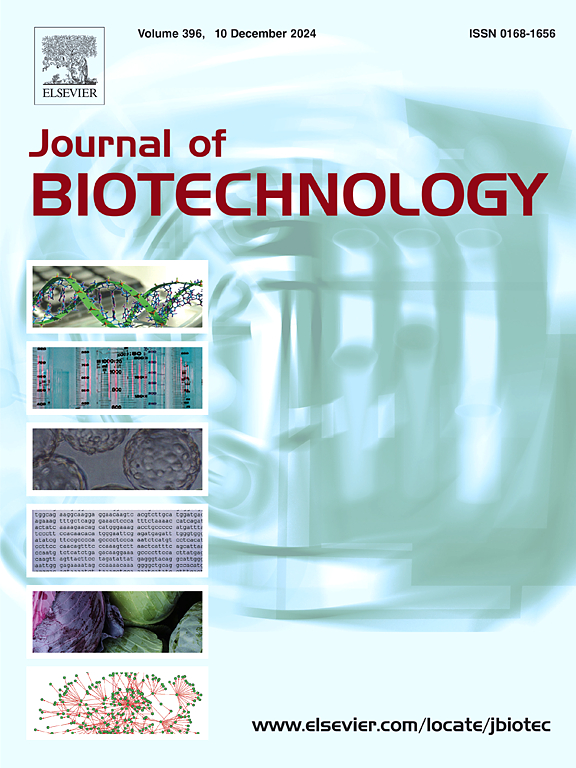Metabolic engineering and high-cell-density fermentation of Corynebacterium glutamicum to improve isopropanol production
IF 4.1
2区 生物学
Q2 BIOTECHNOLOGY & APPLIED MICROBIOLOGY
引用次数: 0
Abstract
Isopropanol is a major chemical used in the chemical industry as a chemical intermediate, organic solvent, and hand sanitizer. In this study, engineered Corynebacterium glutamicum strains capable of high-cell-density fermentation were developed to efficiently produce isopropanol. Transcriptome analysis identified genes that showed significant expression changes under high-cell-density fermentation condition. Based on this analysis, metabolic pathways involved in fermentation byproducts were inhibited, leading to improved isopropanol production under high-cell-density fermentation. To address the metabolic imbalance caused by this metabolic redesign, a glycolysis bypass was introduced, which improved glucose consumption and isopropanol production. High-cell-density fed-batch fermentation under an optimal condition achieved a production titer of 30.66 ± 1.24 g/L, a yield of 0.53 ± 0.03 mol/mol, and a productivity of 511.08 ± 20.72 mg/L/h, representing the highest isopropanol production in C. glutamicum. The development of this strain capable of high-cell-density fermentation demonstrates great potential for the industrial production of isopropanol.
求助全文
约1分钟内获得全文
求助全文
来源期刊

Journal of biotechnology
工程技术-生物工程与应用微生物
CiteScore
8.90
自引率
2.40%
发文量
190
审稿时长
45 days
期刊介绍:
The Journal of Biotechnology has an open access mirror journal, the Journal of Biotechnology: X, sharing the same aims and scope, editorial team, submission system and rigorous peer review.
The Journal provides a medium for the rapid publication of both full-length articles and short communications on novel and innovative aspects of biotechnology. The Journal will accept papers ranging from genetic or molecular biological positions to those covering biochemical, chemical or bioprocess engineering aspects as well as computer application of new software concepts, provided that in each case the material is directly relevant to biotechnological systems. Papers presenting information of a multidisciplinary nature that would not be suitable for publication in a journal devoted to a single discipline, are particularly welcome.
 求助内容:
求助内容: 应助结果提醒方式:
应助结果提醒方式:


